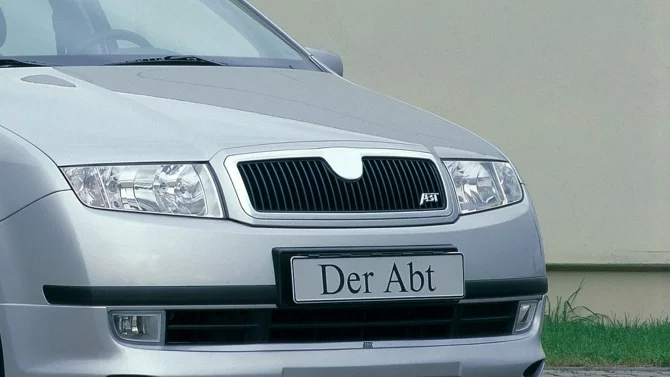...
By Adrian Croft and Jeff Mason
BRUSSELS, June 21 (Reuters) - European Union leaders began a crucial summit on Thursday with hopes of securing an agreement on reforms of the bloc's creaking institutions hanging in the balance over demands by Britain and Poland.
German Chancellor Angela Merkel hopes to secure an agreement to launch negotiations on a new treaty to replace the EU constitution rejected by French and Dutch voters in 2005, and help the enlarged 27-nation Union function more smoothly.
Failure to agree could increase divisions in the EU by prompting a small group of states to press ahead with closer integration, leaving others behind, and making richer countries more reluctant to aid poorer newcomers.
Merkel, chairing the two-day summit under Germany's EU presidency, urged leaders not to obstruct a deal.
"I hope that all work in a spirit that will allow us to achieve a fair agreement because the EU needs to be effective in order for us to solve the many problems in the world together," she told reporters at a pre-summit meeting of conservatives.
Chances of an accord after years of wrangling over the division of power between Brussels and member states appeared to rise after Poland softened its opposition to proposed changes in the voting system which it says would favour bigger states.
Italian Prime Minister Romano Prodi, French President Nicolas Sarkozy and Spanish Prime Minister Jose Luis Rodriguez Zapatero met before the main summit to back the German proposals, an Italian delegation source said.
But Warsaw has waged a fierce campaign, at times making references to its suffering under Nazi German occupation, and Prime Minister Tony Blair said Britain would sign up to a treaty only if four key demands were met.
"The four areas we have set down, we do need satisfied and we do need satisfied in full," Blair, at his last EU summit, said of British efforts to maintain sovereignty in foreign policy, justice, migration and human rights.
Blair put prospects for a deal to launch negotiations on a new treaty at only "touch and go". Polish Prime Minister Jaroslaw Kaczynski put the odds at 50-50.
FRENCH AND CZECH WOOING
Nearly all EU capitals favour a "double majority" formula in the constitution draft requiring 55 percent of member states representing 65 percent of the EU population to pass decisions. Poland argues that favours bigger countries, especially Germany.
Polish negotiator Marek Cichocki said conditions had been created for a summit deal of some kind, but added some issues might have to be held over to an inter-governmental conference.
Diplomats said Poland was being wooed by separate French and Czech mediation bids -- both apparently with Merkel's backing.
While France's Sarkozy was telling the Poles they could expect to be in the inner circle of decision makers, the Czechs were offering a new formula aimed at giving more power to small and medium-size countries, EU diplomats said.
Eighteen EU nations have ratified the constitutional treaty, but there is broad agreement to cut it significantly, to allow France, the Netherlands and Britain to avoid risky referendums.
Some key institutional arrangements are set to be kept, such as creating a president of the European Council of governments elected for 2-1/2 years instead of the current six-month rotating presidency which has grown unwieldy in the enlarged EU.
Britain does not want to be legally bound by any treaty on the bloc's Charter of Fundamental Rights, which includes a broadly defined right to strike.
It also wants to shrink the powers of a proposed EU foreign minister, seeks an opt-out from EU justice cooperation and opposes obligatory social security payments to migrants.
"We should stop this constitutional strip-tease. We've gone far enough," said Austrian Foreign Minister Ursula Plassnik.
Hopes for a deal rose after Kaczynski said this week Poland could accept the voting system it has opposed for months if it received a bigger say by other means.
Kaczynski has said Poland deserves more voting power because its population was decimated by Nazi Germany and would otherwise be much larger now than 38 million.
Hans-Gert Poettering, the German conservative who is president of the European Parliament, said he found such remarks "very painful".
"Throughout Europe since 1989, there has been a great deal of goodwill shown, especially to Poland. That is why as a German, and as a European, it now hurts me very deeply to hear such comments in the 21st century," he told a news conference. (Additional reporting by Emmanuel Jarry, David Brunnstrom, Ingrid Melander, Gabriela Baczynska, Axel Bugge and Marcin Grajewski in Brussels)
Keywords: EU TREATY/




 „Elektrická mobilita je budoucnost, o tom není pochyb. Každý, kdo tvrdí opak, poškozuje náš průmysl.“ A proto přijdou plošné evropské dotace
„Elektrická mobilita je budoucnost, o tom není pochyb. Každý, kdo tvrdí opak, poškozuje náš průmysl.“ A proto přijdou plošné evropské dotace
 Našli jsme deset absolutně neznámých automobilů současnosti. Dokážete uhodnout alespoň polovinu?
Našli jsme deset absolutně neznámých automobilů současnosti. Dokážete uhodnout alespoň polovinu?
 Dvě i čtyři doby, tři a čtyři válce: Saab 96 se stal vozem pro individualisty, a to i v Československu
Dvě i čtyři doby, tři a čtyři válce: Saab 96 se stal vozem pro individualisty, a to i v Československu
 Elektromobil jako ojetinu nikdo nechce. Velký český autobazar skončil s jejich nákupem i prodejem
Elektromobil jako ojetinu nikdo nechce. Velký český autobazar skončil s jejich nákupem i prodejem
 Youtubeři zkoušeli, jestli nastartují Tatru 138 odstavenou osmnáct let. Výsledek nikoho nepřekvapí
Youtubeři zkoušeli, jestli nastartují Tatru 138 odstavenou osmnáct let. Výsledek nikoho nepřekvapí
